American Money Owns European Football. Get Used to It
How U.S. investors took control of The Beautiful Game and what happens next.
Not long ago, private equity and European football (or soccer, as our U.S. friends insist on calling it) felt like separate worlds. Football was passion, legacy, identity, something passed down like an heirloom or controlled by an enigmatic billionaire with a story to tell. Italian playboys like Gianni Agnelli saw football as a family dynasty, while Roman Abramovich turned Chelsea into a ruthless winning machine. These weren’t just owners, they were characters. Their power, ego, and charm made as many headlines off the pitch as on it.
Then, football changed. No longer the domain of eccentric billionaires, the game became an asset class, something to be leveraged, scaled, and optimised. And as with everything in global entertainment, American investment saw an opportunity. It’s not just reshaping the sport, it already owns half of it. I’ve tracked these moves for years, watching the shift happen in real time, not just understanding the deals, but the mindset behind them.
The U.S. Takeover of European Football
American capital isn’t just entering football, it’s taking charge. U.S. private equity firms no longer sit on the sidelines; they own the pitch, the club shop, the leagues, and soon, your team’s next shirt sponsor. You just haven’t clocked it yet. With betting firms set to be removed from Premier League shirts in 2025, expect American-backed companies to fill the gap.
Consider this: 50% of Premier League clubs are now under American ownership. That includes Manchester United (Glazers), Chelsea (Clearlake Capital), Arsenal (Kroenke Sports & Entertainment), Liverpool (Fenway Sports Group), Aston Villa (Wes Edens), Crystal Palace (John Textor), Everton (Friedkin Group), Fulham (Shahid Khan) and Bournemouth (Bill Foley).
It’s not just England. Italy’s Serie A is following suit, with AC Milan (RedBird Capital), AS Roma (Friedkin Group), Fiorentina (Rocco Commisso), Atalanta (Stephen Pagliuca) and Hellas Verona (Presidio Investors) all benefiting from U.S. financial backing. Historic European clubs like Lyon (John Textor) and Toulouse (RedBird Capital) are now part of American financial portfolios.
Sure, sovereign wealth funds from the Middle East have played a role, Manchester City’s Abu Dhabi-backed dominance and Newcastle United’s Saudi-led resurgence prove that. But make no mistake: American capital is driving football’s modern evolution. If you’re not paying attention, you’re already behind.
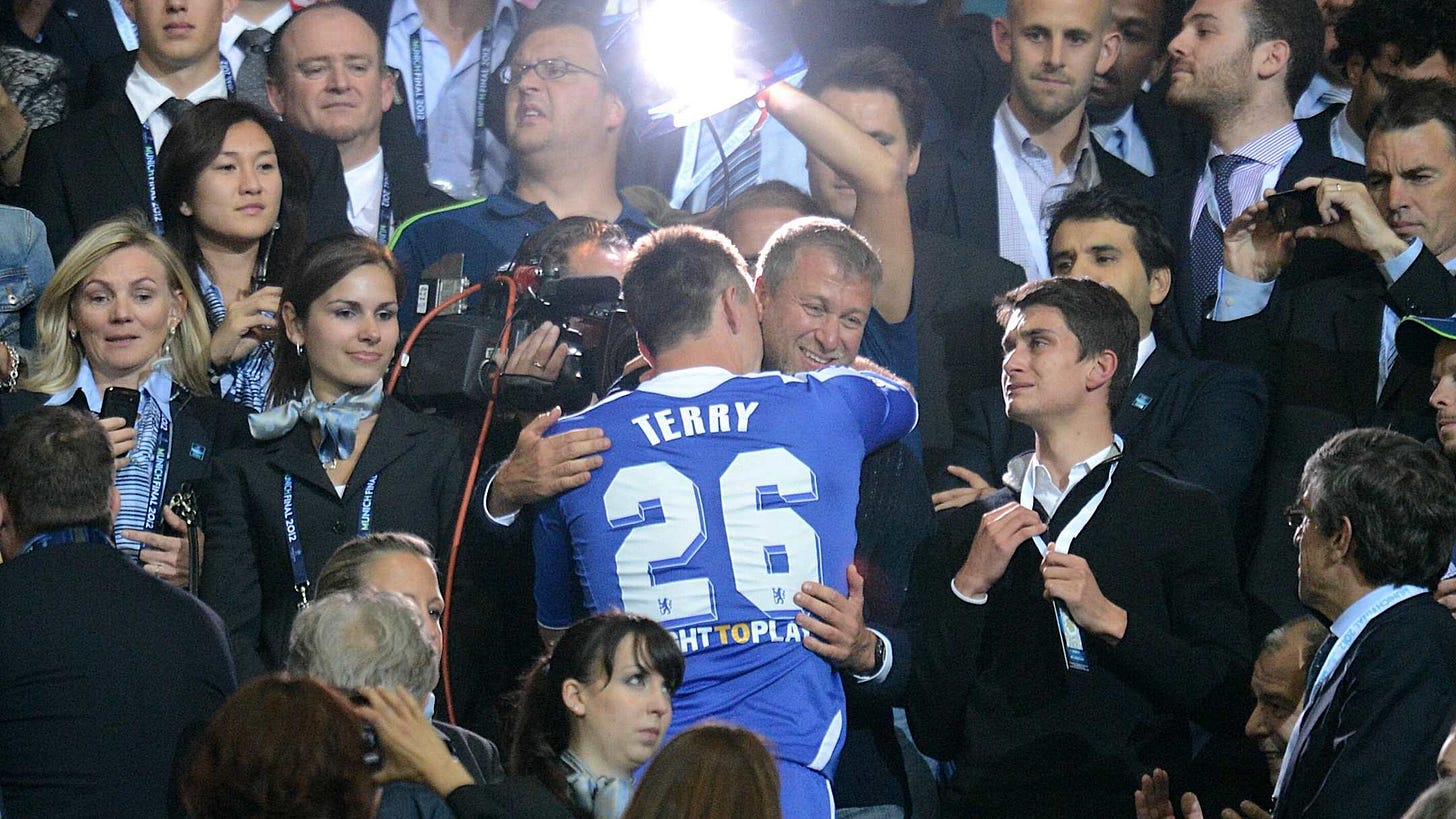
The U.S. Football Boom Is Only Beginning
While European clubs embrace U.S. investment, football (sorry, soccer) is booming in America too. MLS already has the second-highest average stadium attendance in the world after the Premier League. And that’s before the full impact of the FIFA World Cup 2026 in North America. With World Cup momentum, U.S. cities will become football capitals, and American investors are already positioning themselves to own the upside.
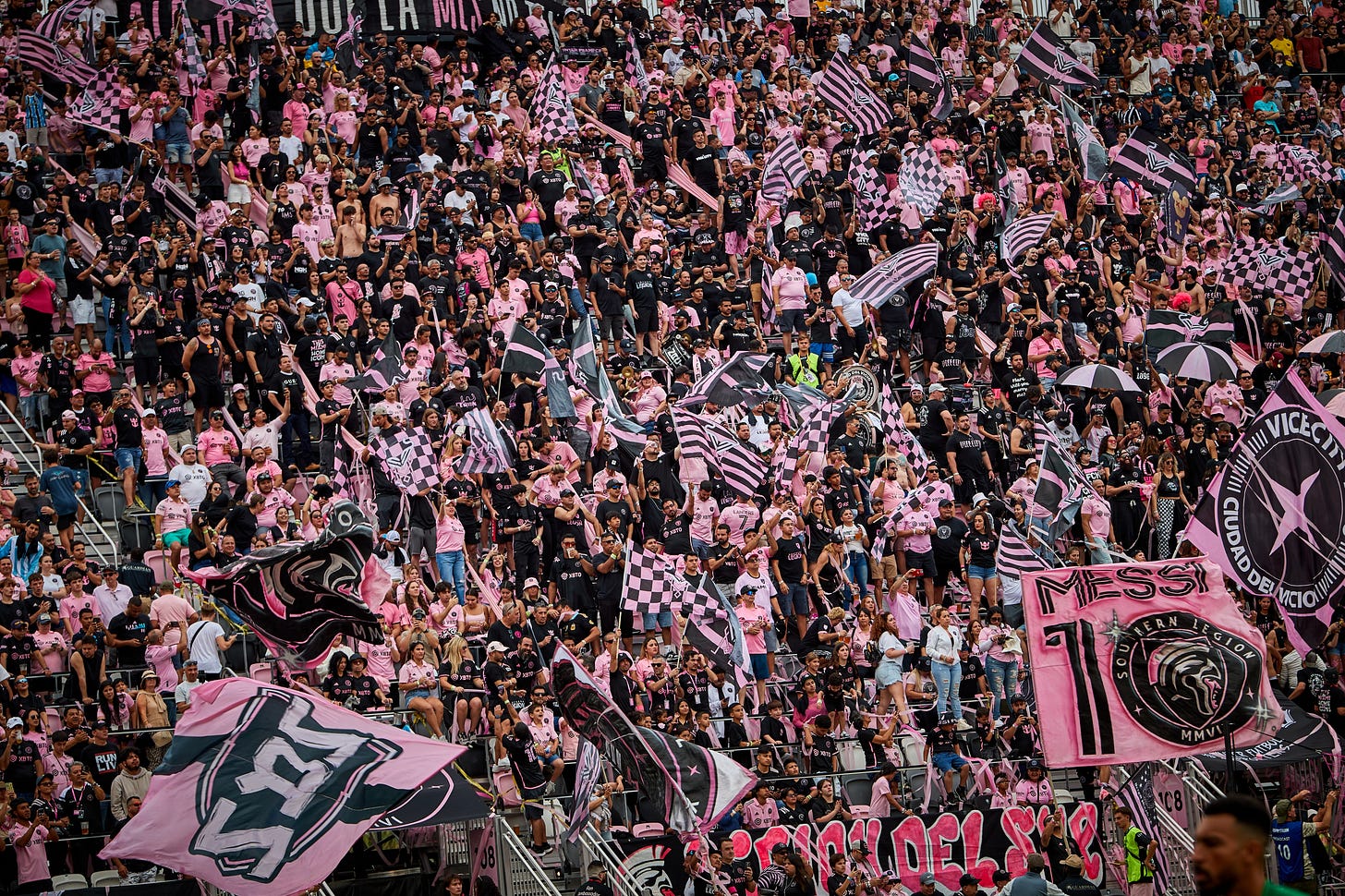
Why American Private Equity Sees Football as the Future
For most of football’s history, club ownership was a billionaire’s playground, a passion project for industrialists and oil magnates. That playbook is dead.
The new power players aren’t sentimentalists, they’re strategic investors who see clubs as undervalued global entertainment assets. Several key shifts have made this possible:
Globalisation of football → The Premier League, LaLiga, and Champions League have turned clubs into massive global brands, generating revenues far beyond matchday sales.
Expanding revenue streams → Streaming deals, club-owned media, merchandising, and international pre-season tours are unlocking untapped value.
Undervalued assets → Compared to U.S. sports franchises, European clubs are still underpriced. When Todd Boehly’s Clearlake Capital-led consortium bought Chelsea for £2.5B, it wasn’t just a sporting move, it was a bet that European clubs were mispriced global assets.
And just like that, football clubs transitioned from heritage institutions to high-growth businesses.
Buying European Clubs: A Strategic Investment
Every NBA and NFL franchise is valued in the billions and rarely comes up for sale. By contrast, picking up a legacy brand in European football is a strategic bargain.
If you want a slice of the Dallas Cowboys or LA Lakers, good luck. But a historic club in Italy, France, or even England? There’s always a deal to be made. American investors recognise value when they see it, and football clubs, despite their global influence, remain surprisingly accessible compared to U.S. sports properties.

The American Visionaries Reshaping Football
Follow the money, and you’ll find the same U.S. power players who transformed sports and entertainment:
Clearlake Capital & Todd Boehly (Chelsea) → The landmark £2.5B Chelsea acquisition in 2022 redefined football ownership. Boehly’s group has introduced a U.S.-style multi-club model, data-driven scouting, and aggressive commercial strategies.
RedBird Capital (AC Milan, Toulouse, FSG/Liverpool Stake) → RedBird acquired AC Milan in 2022 and applies a Moneyball-esque approach, using AI and analytics to maximise squad and financial efficiency.
CVC Capital Partners (LaLiga & Ligue 1 Stake) → Instead of buying a club, CVC invested in leagues. Their billion-euro deals in LaLiga and Ligue 1 secured a stake in future broadcast revenues. Structuring a forward-financing deal for Barcelona’s TV rights, then leveraging that to cut a deal with LaLiga itself? That’s power and influence in the shadows.
Oaktree Capital (Inter Milan) → Oaktree took control of Inter Milan when Suning Holdings defaulted on their loan, seizing one of Italy’s biggest clubs at a huge discount. A masterclass in distressed asset investing.
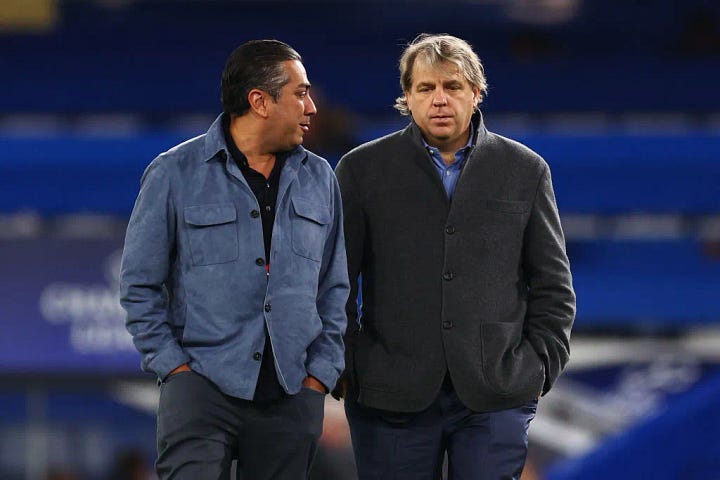
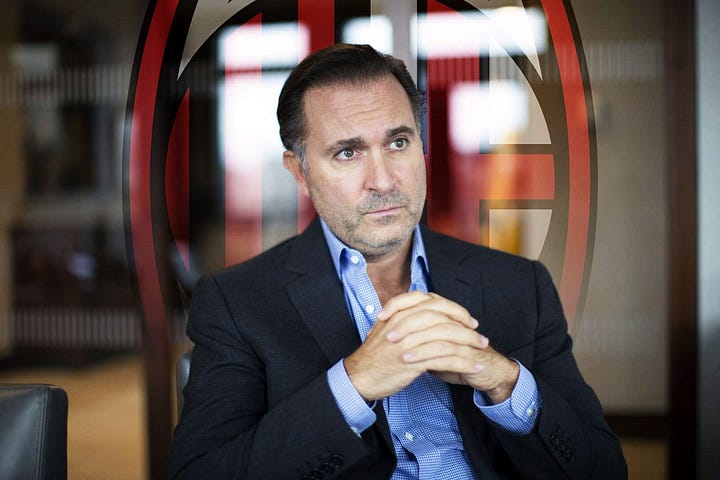
With the strength of the U.S. dollar, European investments are getting cheaper. If Trump returns to the White House and the dollar continues its dominance, expect more deals to close quickly. Having worked as a trader in government bonds and currencies for five years before moving into sports, I’ve seen firsthand how macroeconomic shifts create windows of opportunity. This isn’t just about football, it’s about financial leverage and strategic positioning.
What This Means for Clubs, Players, and Fans
Football Clubs Are Now High-Performance Businesses
More focus on commercial growth → Clubs will be pushed harder to maximise revenues from sponsorships, stadium experiences, and digital platforms. Look at how Kroenke Sports consolidated their multi-sport franchise commercial teams and invested heavily in Arsenal’s media and production team, focusing on CRM and direct-to-consumer content. Expect more Amazon-style football documentaries and behind-the-scenes content strategies.
More player trading for financial efficiency → Multi-club models allow owners to optimise player development, increasing squad value across multiple teams.
Debt financing as a tool for smart expansion → PE firms leverage club earnings to fuel rapid growth. I discussed this as a guest on Sky Sports' Transfer Show last summer, analysing the Profit & Sustainability Rules and the structured financial approaches clubs are taking.
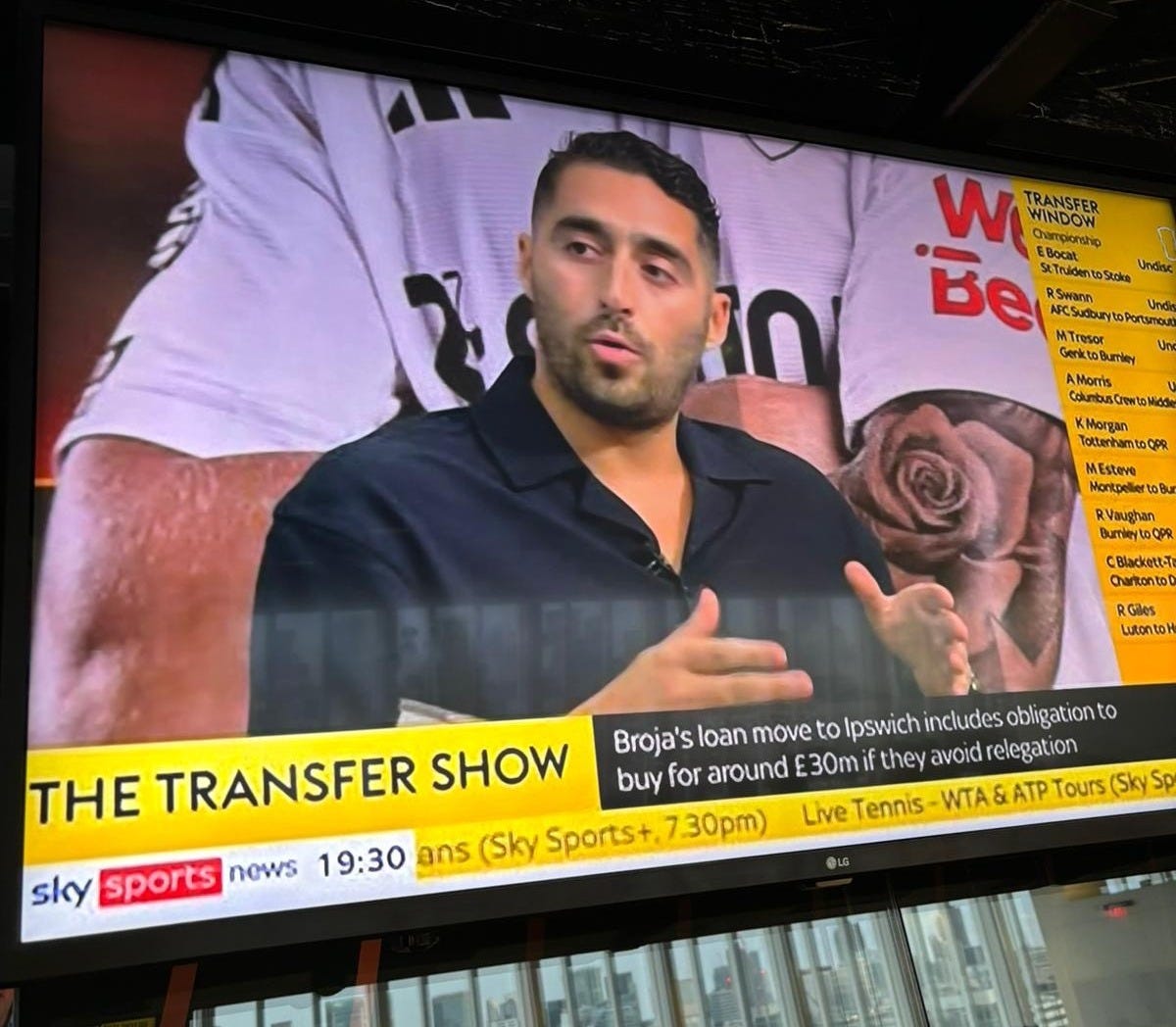
What This Means for Clubs, Players, and Fans
They think differently because they’re experts in the business of sport and entertainment.
Americana is the world’s most powerful brand. Hollywood, the NBA, the NFL, and the architects of modern sports finance all come from the U.S. We may have invented football, but they mastered the art of monetising it at scale.
And that, more than anything, is why they’re winning.
The next phase? Let’s just say the Super League debate isn’t dead, it’s waiting for the right moment.
Thanks for reading GAMEPLAYER.
Through CAOS, GAFFER, and over 100 football contracts, transfers, brand deals, and equity-driven partnerships, I’ve seen power shift from clubs to investors, brands to athletes, and legacy to culture.
I break down what matters. Private equity takeovers, athlete-led media, billion-dollar sports IP, and the future of merchandising and streaming.
This isn’t just commentary. It’s about who’s making the real moves and what’s coming next.






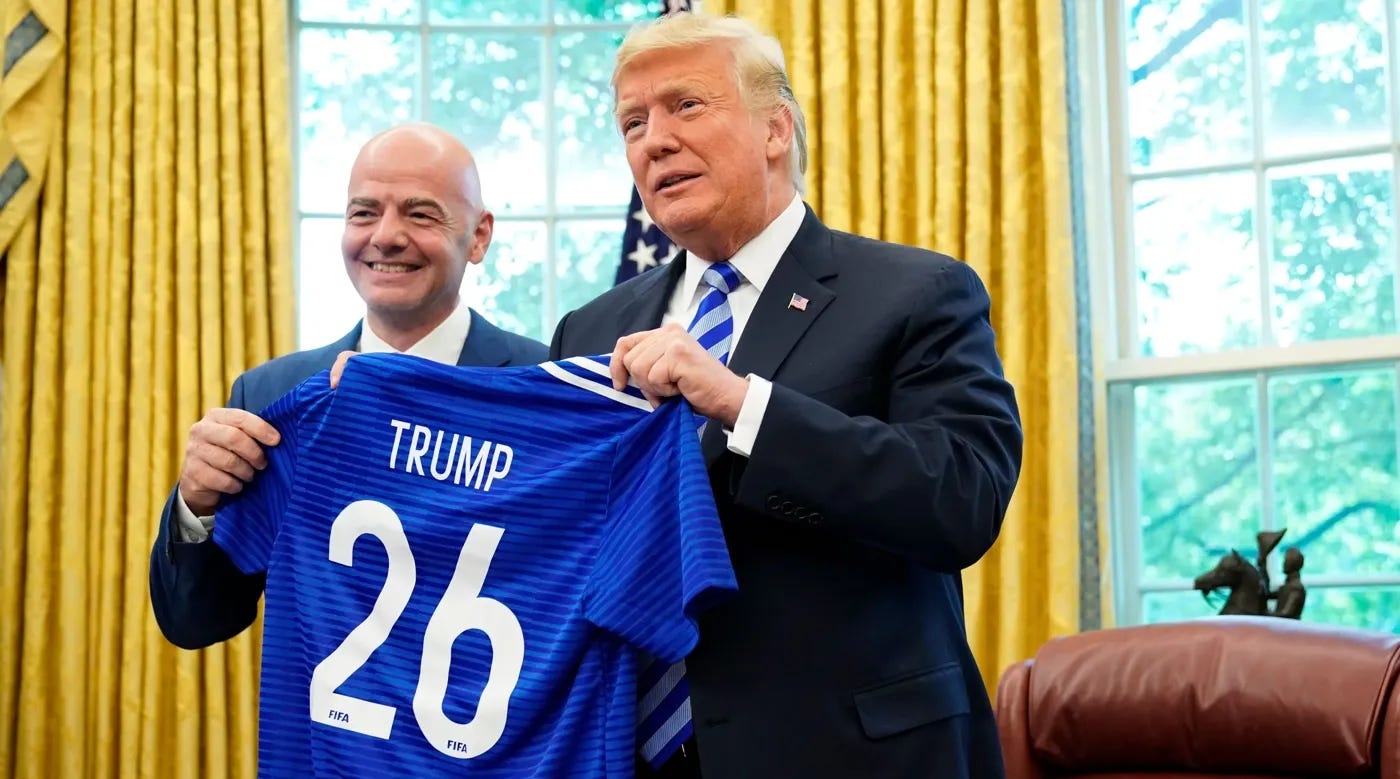
Brilliant read!
I think PE firms will struggle because football brings far more attention to ownership than they can likely handle. Do you think Todd honestly expected this much coverage?
Your performance in the books is genuinely an afterthought—fans don’t care if profit margins have increased or if cash has been used effectively. Performance can also be assessed instantly through league tables, and the valuation of a football club carries high levels of risk. A demotion could likely cut a club’s value in half overnight, especially if they go down for two consecutive seasons.
In short, football clubs are the perfect business ground—failure to innovate can be fatal, and if you don’t spend or invest, you’ll suffer immensely.